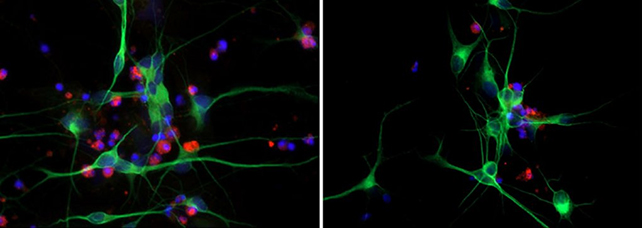Lower temperatures might not warm your heart, but they could make for a longer life.
Past research has proposed a few reasons behind this intriguing phenomenon. Now scientists from the University of Cologne in Germany have used experiments on worms to identify another possible reason: coldness drives a process through which damaged proteins are removed from cells.
Several neurodegenerative diseases that can take hold as we get older – including Alzheimer's and Parkinson's – are linked to the build-up of bad proteins, so discovering how temperature affects this process is a significant step forward in terms of finding ways to potentially slow or even stop this deterioration from happening.
While sitting around in the cold is unlikely to be a therapy option any time soon, understanding the workings of processes that cold temperatures kick start could help us to replicate them through the use of targeted treatments.
"Extreme low temperatures are detrimental, but a moderate decrease in body temperature can have beneficial effects for the organism," write the researchers in their published paper.
"Although the longevity effects of low temperature were reported more than a century ago, little is known about how cold temperature influences lifespan and health."
The researchers ran tests on the Caenorhabditis elegans worm and on cultivated human cells in the lab, finding that colder temperatures led to the removal of protein clumps that accumulate in animal and cell models of amyotrophic lateral sclerosis (ALS) and Huntington's disease.
This was done through structures called proteasomes that break down protein waste, and in particular the worm version of the PA28γ/PSME3 proteasome activator found in humans. It only took a moderate drop in temperature in order to get the activator working and cleaning up potentially dangerous protein accumulation.

The team also found a bit of clever genetic engineering could dial-up proteasome activity, achieving the same result without cooling. This raises the possibility of treatments that could keep these proteasome activators working no matter what the temperature of the body.
"Taken together, these results show how over the course of evolution, cold has preserved its influence on proteasome regulation – with therapeutic implications for aging and aging-associated diseases," says biologist David Vilchez from the University of Cologne in Germany.
It's an exciting finding: you might not think it, but C. elegans has a lot in common with humans, including the way that proteins can clump together (the worm is often used in research because we share some important genetic similarities).
There's still lots to discover about the relationship between colder temperatures and aging. The average internal human body temperature has been steadily declining over the decades, for example, which may have influenced increases in life expectancy.
By taking a much closer and more detailed look at exactly what's underpinning this relationship, the researchers hope that the PA28γ/PSME3 proteasome activator could be one route towards aging in a healthier way.
"We believe that these results may be applied to other age-related neurodegenerative diseases as well as to other animal species," says Vilchez.
The research has been published in Nature Aging.
